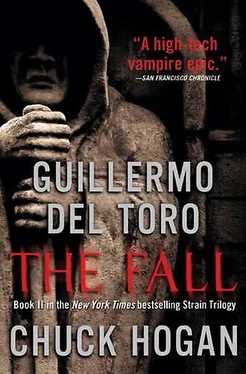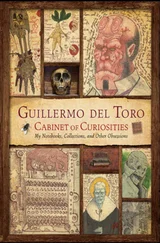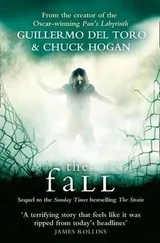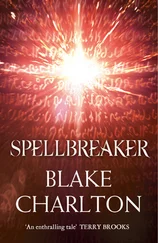You do not place provisions on a monster such as the Master. You bid for its favor, and then accept its largesse with gratitude.
One more mortal day. Palmer thought he might even enjoy it.
All plans are fully in motion. My Brood is marching across the mainland. We have exposure in every critical destination, our circle widening in cities and provinces around the globe.
Palmer swallowed his anticipation, saying, “And even as the circle grows, it simultaneously tightens.” His old hands described the scenario, fingers interlocking, palms squeezing together in a pantomime of strangling.
Indeed. One last task that remains before the start of The Devouring.
Eichhorst, looking like half a man beside the giant Master, said: The book.
“Of course,” said Palmer. “It will be yours. But, I must ask you… if you already know the contents…”
It is not critical that I be in possession of the book. It is critical that others are not.
“So — why not just blow up the auction house? Explode the entire block?”
Crude solutions have been attempted in the past, and have failed. This book has had too many lives. I must be absolutely certain of its fate. So that I may watch it burn.
The Master then straightened to its full height, becoming distracted in such a way that only the Master could.
It was seeing something. The Master was physically in the cave with them, but psychically it was seeing through another’s eyes — one of the Brood.
Into Palmer’s head, the Master uttered two words:
The boy.
Palmer waited for an explanation, which never came. The Master had returned to the present, the now. He had returned to them with a new certainty, as if he had glimpsed the future.
Tomorrow the world burns and the boy and the book will be mine.
Fet’s Blog
I have killed.
I have slain.
With the hands typing this now.
I have stabbed, sliced, beat, crushed, dismembered, beheaded.
I have worn their white blood on my clothes and my boots.
I have destroyed. And I have rejoiced at the destruction.
You may say, as an exterminator by trade, I’ve been training for this all my life.
I understand the argument. I just can’t support it.
Because it is one thing to have a rat race up your arm in blind fear.
Yet quite another to face a fellow human form and cut it down.
They look like people. They are very much like you and me.
I am no longer an exterminator. I am a vampire hunter.
And here is the other thing.
Something I will only say here, because I don’t dare tell anyone else.
Because I know what they will think.
I know what they will feel.
I know what they will see when they look into my eyes.
But — all this killing?
I kind of like it.
And I’m good at it.
I might even be great at it.
The city is falling and probably the world. Apocalypse is a big word, a heavy word, when you realize you are actually facing it.
I can’t be the only one. There must be others out there like me. People who have lived their whole lives feeling half-complete. Who never truly fit anywhere in the world. Who never understood why they were here, or what they were meant for. Who never answered the call, because they never heard it. Because nothing ever spoke to them.
Until now.
Penn Station
Nora looked away for what seemed like only a moment. As she stared at the big board, waiting for their track number to be announced, her gaze deepened and, utterly exhausted, she zoned out.
For the first time in days, she thought of nothing. No vampires, no fears, no plans. She relaxed her focus, and her mind dipped into sleep mode while her eyes remained open.
When she blinked back to awareness, it was like waking up from a dream about falling. A shudder, a startle. A small gasp.
She turned and saw Zack next to her, listening to his iPod.
But her mother was gone.
Nora looked around, didn’t see her. She tugged down Zack’s earbuds, asking him, and he joined her in looking.
“Wait here,” said Nora, pointing to their bags. “Do not move!”
She pushed her way through the shoulder-to-shoulder crowd waiting before the departures board. She looked for a seam in the crowd, some path her slow-moving mother might have left, but saw nothing.
“Mama!”
Raised voices made Nora turn. She pushed toward them, coming out of the dense crowd near the side of the concourse, by the gate of a closed deli.
There was her mother, haranguing a bewildered-looking family of South Asians.
“Esme!” yelled Nora’s mother, invoking the name of her late sister, Nora’s late aunt. “Take care of the kettle, Esme! It’s boiling, I can hear it!”
Nora reached her finally, taking her arm, stammering an apology to the non-English-speaking parents and their two young daughters. “Mama, come.”
“There you are, Esme,” she said. “What’s that burning?”
“Come, Mama.” Tears wet Nora’s eyes.
“You’re burning down my house!”
Nora clasped her mother’s arm and pulled her back through the crowd, ignoring the grunts and insults. Zack was on tiptoes, looking for them. Nora said nothing to him, not wanting to break down in front of the boy. But this was too much. Everybody has a breaking point. Nora was fast approaching hers.
How proud her mother had been of her daughter, first a chemistry major at Fordham, then medical school with a specialty in biochem at Johns Hopkins. Nora saw now that her mother must have assumed she had it made. A rich doctor for a daughter. But Nora’s interest had been public health, not internal medicine or pediatrics. Looking back now, she thought that growing up in the shadow of Three Mile Island had shaped her life more than she had realized. The Centers for Disease Control and Prevention paid government grade, a far cry from the healthy income potential of many of her peers. But she was young — there was time to serve now and earn later.
Then her mother got lost one day on the way to the grocery store. Having trouble tying her shoes, turning on the oven and walking away. Now conversing with the dead. The Alzheimer’s diagnosis prompted Nora to give up her own apartment, in order to care for her declining mother. She had been putting off finding a suitable long-term care facility for her, mainly because she still did not know how she could afford it.
Zack noticed Nora’s distress but left her alone, sensing that she did not want to discuss it. He disappeared back beneath his earbuds.
Then suddenly, hours after it was scheduled, the track number for their train finally flipped over on the big board, announcing the train’s approach. A mad rush ensued. Shoving and yelling, stiff-arming, name-calling. Nora gathered up their bags and hooked her mother’s arm and hollered at Zack to move.
It got uglier still when the Amtrak official at the top of the narrow escalator leading down to the track said the train wasn’t ready yet. Nora found herself near the rear of the angry crowd — so far back, she wasn’t sure they would make it onto the train, even with paid tickets.
And so, Nora did something she had promised herself she would never do: she used her CDC badge to push her way through to the front of the line. She did so knowing that it was not for her own selfish benefit but for her mother and Zack. Still, she heard the name-calling and felt the daggers in every passenger’s eyes as the crowd slowly parted, begrudgingly allowing them through.
And then it seemed it was all for nothing. Once they finally opened the escalator and allowed passengers down to the underground track, Nora found herself facing empty rails. The train was again delayed, and no one would tell them why, or give an estimate as to how long.
Читать дальше
Конец ознакомительного отрывка
Купить книгу












